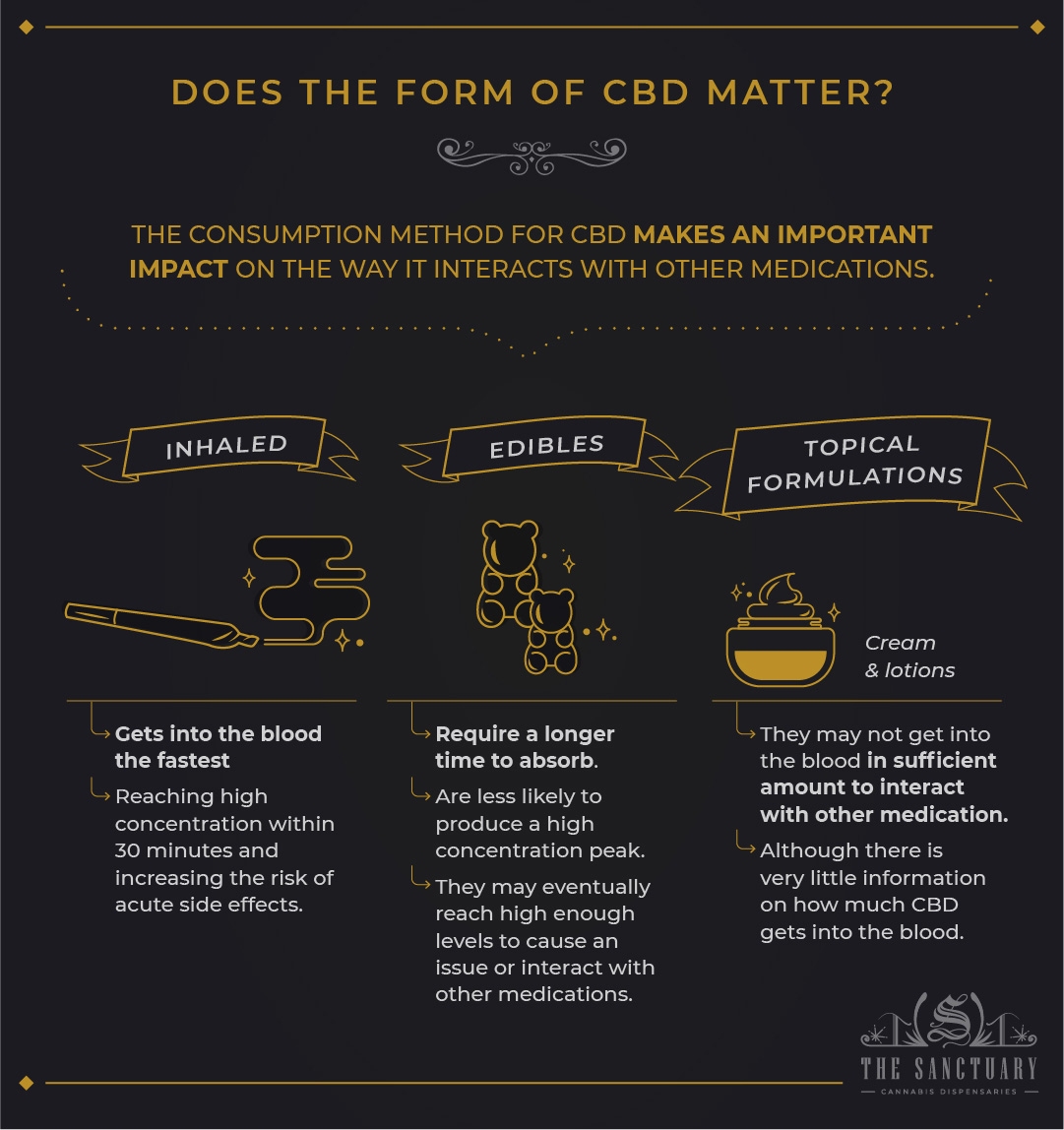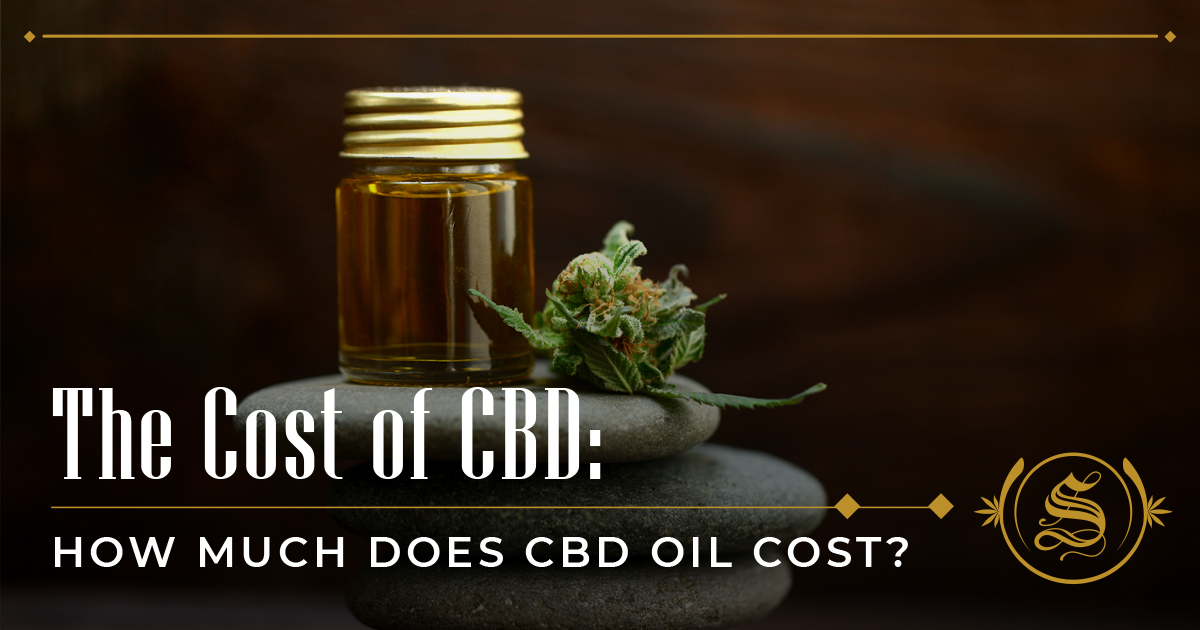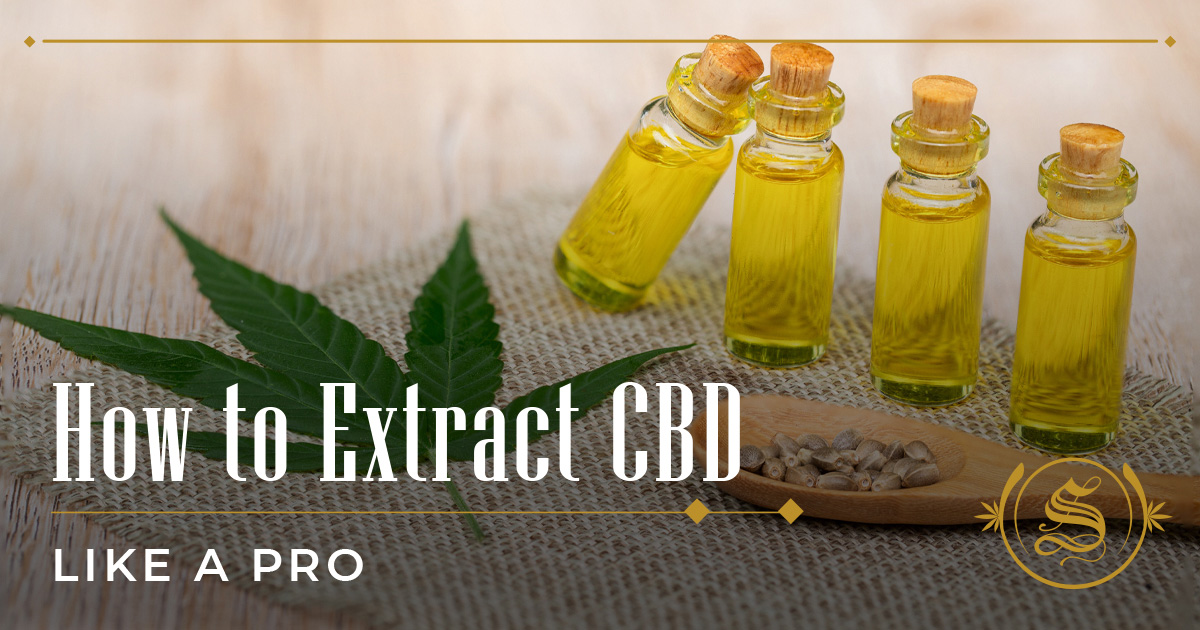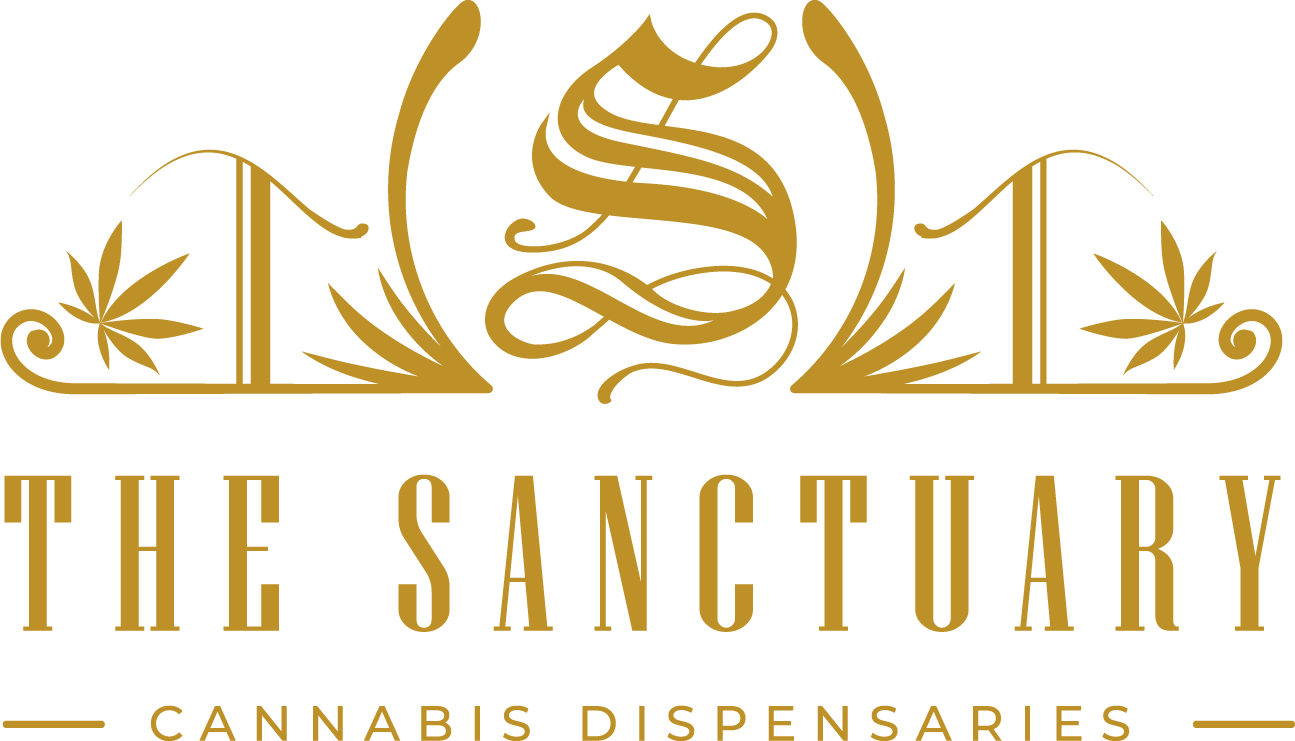Iftikhar Alam
Author
Reviewed by Cannabis Experts
Published on: August 9, 2021 | Updated on: July 28, 2024
Cannabis is a complicated plant that contains hundreds of compounds and more than 100 different cannabinoids. Cannabidiol, or CBD, is the second most prevalent cannabinoid present in cannabis, and research suggests that it may have therapeutic advantages for a variety of ailments.
CBD has gotten a lot of press because of its potential to help with anxiety, chronic pain, sleeplessness, and a variety of other health issues. While research on the efficacy of CBD is still underway, many individuals are giving it a try.
CBD is usually harmless, according to research, and has few, if any, mild adverse effects. However, there is one major caveat: CBD may interfere with some medicines. The issue revolves around how particular chemicals are metabolized by the body.
It is critical to tell your doctor about all of the supplements, vitamins, prescriptions, and over-the-counter drugs you’re using before trying CBD.
Doubling up on side effects
While CBD is usually seen to be harmless, it might induce adverse effects such as:
- Nausea
- Dry mouth
- Drowsiness
- Diarrhea
- Lightheadedness
- Liver damage (in rare instances)
When CBD is used with other medicines that have comparable side effects, the risk of unpleasant symptoms or toxicity increases.
To put it another way, mixing CBD with over-the-counter or prescription sleep medications and substances like benzodiazepines (such as Xanax or Ativan), antipsychotics, opioids, antihistamines (such as Benadryl), antidepressants, or alcohol can lead to increased fatigue, sleepiness, and potentially dangerous falls and accidents while driving.
Certain herbal medications, such as melatonin, kava, and St. John’s wort, might cause increased fatigue and sedation. CBD combined with stimulants (such as Adderall) may cause a decrease in appetite, whereas CBD combined with the diabetic medication Metformin or some heartburn medications (i.e. Prilosec) may cause diarrhea.
CBD can alter the effects of other drugs
CBD may compete for or interfere with enzymes in the liver that break down many medicines, resulting in too little or too much of the drug in the body, a condition known as altered concentration.
As a result of the changed concentration, the drug may stop working or raise the risk of adverse effects. Drug interactions are notoriously difficult to predict, yet they can result in unpleasant and occasionally fatal consequences.
The information on prescription CBD and delta-9-tetrahydrocannabinol (THC) cannabis medicines was examined by Penn State College of Medicine researchers. The researchers discovered 139 medicines that may be impacted by cannabis as a result of their investigation.
This list was further whittled down to 57 medicines for which a change in concentration may be fatal. The list includes a wide range of medicines, from heart meds to antibiotics, though not all of them are likely to be impacted by CBD-only products (some are only affected by THC).
Understanding the CYP system
Drugs are processed and removed in the liver by enzymes belonging to the cytochrome P450 (CYP) family. The most common CYP enzyme in the liver is CYP3A4, which is responsible for metabolizing almost half of all prescription drugs used in clinical practice.
However, the CYP enzymes have been linked to a number of clinically significant drug-drug interactions. Some medicines increase the metabolic activity of enzymes, while others decrease it, resulting in variations in drug concentrations and pharmacokinetic profiles in the body.
For example, a medication that inhibits CYP3A4 can delay the metabolic process, causing drug concentrations to accumulate, increasing the risk of adverse effects and probable drug toxicity.
CYP3A4 is involved in the metabolism of both THC and CBD. THC is metabolized by CYP2C9, whereas CBD is processed by CYP2C19. THC and CBD in cannabis products can hinder or stimulate the metabolic process when used with certain prescription medications. CBD, for example, is a strong inhibitor of the CYP3A4 and CYP2D6 enzymes, but THC is a CYP1A2 inducer.
Medications that have drug-drug interactions with CBD
For the typical individual, the Penn State researchers’ list might be difficult to understand. Here’s a rundown of some of the medicines that have been identified as having drug-drug interactions with CBD and/or THC.
Warfarin
Cannabinoids enhance the risk of bleeding in warfarin-treated individuals.
Because warfarin has such a small therapeutic window, even modest changes in its efficacy might raise the risk of bleeding and thrombosis. Because CBD and THC block the CYP2C9 enzyme’s metabolic function, they can raise warfarin levels and hence increase the risk of bleeding.
A male on warfarin presented twice with international normalized ratio (INR) readings above 10, as well as bleeding, according to one case report. (A patient on warfarin should have an INR of 2 or 3, and an INR of more than 4.5 increases the risk of severe bleeding.) He had upped his cannabis consumption on both occasions.
Ibuprofen
Ibuprofen is an NSAID (nonsteroidal anti-inflammatory drug) that helps to relieve pain and inflammation in the body. Ibuprofen can induce dizziness, shortness of breath, and nausea, as well as blood thinning.
CBD has the potential to lengthen and strengthen the effects of ibuprofen, raising the risk of negative side effects. CBD’s interaction with NSAIDs has not been studied in humans yet.
Nonetheless, two animal studies published in the journals Pain and Pharmacology in 2006 and 2008 show that other cannabinoids may function synergistically with NSAIDs like ibuprofen to decrease pain.
Theophylline
Bronchitis, asthma, emphysema, and other lung disorders are treated with theophylline, a bronchodilator. Smoking weed may accelerate theophylline’s metabolic clearance, thereby reducing the drug’s impact.
However, it is unclear if this interaction is caused by a cannabis product or just by smoking, as tobacco smoking has a comparable impact. Another reason to doubt this link is that theophylline clearance is not induced by any other cannabinoid.
Clobazam
CBD enhances the benefits and adverse effects of Clobazam, a benzodiazepine used to treat seizures in children and adults with Lennox-Gastaut syndrome.
CBD was also authorized by the FDA for treating seizures associated with Lennox-Gastaut syndrome and Dravet syndrome on its own. This prescription CBD, known as Epidolex, was the first cannabis-derived medicine to be authorized by the FDA.
CBD, on the other hand, is a strong CYP2C19 inhibitor. When these two medicines are combined, the CBD interaction contributes to Clobazam’s effectiveness, resulting in a three-fold rise in Clobazam’s active metabolite plasma levels. The disadvantage is that this interaction enhances Clobazam’s sedative side effect.
As a result, when clobazam is used with CBD, physicians are advised to reduce the dose of clobazam.
Eliquis
Eliquis (apixaban) is a blood thinner used after hip or knee replacement surgery to reduce the risk of stroke or blood clots in veins, the lungs, the heart, and the legs. Eliquis raises the risk of serious bleeding, therefore patients who take it must follow their doctor’s instructions to the letter.
Eliquis is processed in the liver by CYP proteins, which are the same proteins that CBD acts on to slow metabolization. This procedure might result in an Eliquis overdose, putting you at risk of serious bleeding.
Valproate
Valproate is a medication used to treat epileptic seizures, as well as manic episodes of bipolar disorder and migraine headaches.
Taking CBD with Valproate might induce an increase in liver enzymes, which can lead to liver damage. In clinical studies, 21 percent of epileptic patients who took Valproate plus prescription CBD (Epidolex) had transaminase levels that were more than three times the upper limit of normal. (In epilepsy patients using Epidolex, Valproate, or Clobazam, the occurrence rate was 30 percent.)
If liver enzyme increases occur, the prescription instructions for Epidolex suggest stopping or modifying the dose of Epidolex and/or Valproate.
Plavix
Plavix is the brand name for the medication clopidogrel, which is commonly administered to people who have had or are at risk of having a heart attack. The medication prevents blood platelets from clotting in arteries near the heart.
CBD may have an inhibiting impact on CYP2C19, the enzyme that metabolizes Plavix, according to 2011 research published in the journal, Life Sciences. This may cause Plavix to stay in the body longer, weakening its overall benefits. More study is needed to see if this reduces the efficacy of Plavix in preventing heart attacks.
Does the form of CBD matter?
The manner CBD is consumed has a significant influence on how it interacts with other medicines. Inhaled CBD is the quickest way to be delivered into your bloodstream, reaching high concentrations in 30 minutes or less and raising the risk of acute adverse effects.
Edibles take longer to absorb and are less likely to generate a high concentration peak, though they may ultimately reach levels high enough to cause problems or interact with other medicines.
Although there is very little information on how much CBD gets into the blood ultimately, topical formulations like lotions and creams may not absorb and get into the blood in significant amounts to interfere with other medicines.
Does CBD affect blood pressure?
CBD’s potential to decrease blood pressure is supported by a 2017 study published in the journal JCI Insight. CBD’s anti-anxiety and anti-stress qualities may also contribute to the overall capacity to reduce blood pressure, according to researchers.
CBD used with blood pressure medicine or beta-blockers, on the other hand, has the potential to cause both medications to work in tandem, lowering blood pressure to dangerously low levels.
Does caffeine counteract CBD?
Caffeine and CBD are two drugs that are increasing in popularity, especially when combined. Caffeine can help those who are sleep-deprived stay awake and clear-headed.
Caffeine is processed by CYP enzymes, which CBD inhibits, according to rat research published in the journal Pharmacology Reports in 2007. This has the ability to increase the duration caffeine remains in the body, as well as the stimulating effects of caffeine.
The content provided on this blog is for informational purposes only and does not constitute medical, legal, or professional advice. Cannabis use is subject to local laws and regulations, which vary widely by jurisdiction. Always consult with a healthcare professional before starting any new treatment or altering an existing treatment regimen. The authors and publishers of this blog are not responsible for any actions taken based on the information provided herein. Use cannabis responsibly and in accordance with applicable laws. This blog is intended for adults aged 21 and over. The Sanctuary Dispensaries D186, D187.









